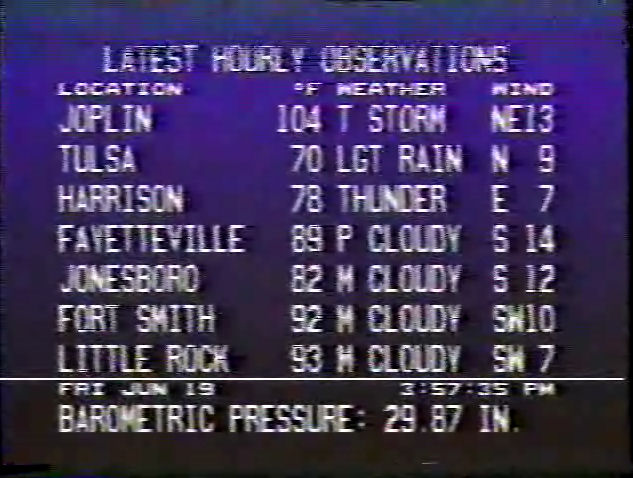 A friend of mine sent me a link to an article about a group of scientists from Zurich using unusual means to actually obtain an image of a molecule. The story is fascinating stuff.
A friend of mine sent me a link to an article about a group of scientists from Zurich using unusual means to actually obtain an image of a molecule. The story is fascinating stuff.
The comments…less so. It’s just the latest in a long line of incidents I’ve witnesses that has convinced me that the much-vaunted “Web 2.0” paradigm has fallen short of the sales pitch on the outside of the box. Perhaps it’s less than democratic of me to take a big number two all over Web 2.0, whose underlying mantras seem to have been “let everyone comment on everything” and “rely on users to generate new content,” but from what I’ve been able to tell, the experiment has not yielded a resounding success.
A site like YouTube, flickr or DeviantArt can indeed thrive on user-generated content, but I have yet to see the benefit of gathering comments on news stories – at least not on a serious news site. You can’t glance at CNN’s political section without seeing that any given news item has accumulated hundreds, if not thousands, of responses, and most of them are what, in my forum moderating days, I would’ve called “flamebait.” Both ends of the political spectrum lob flaming dogpiles at one another, often using words that are pretty much designed to provoke a response. It’s frequently the voice of, at best, inflexible thought, or at worst, extremism – the kind of voices who frequent local letters to the editor pages and call-in hours on political talk radio. And yet there it is, on CNN.com.
The wild rants accompanying the molecule story above are a good example of what could’ve been an interesting discussion spiralling out of control insanely early in the proceedings – the thing just instantly goes nuclear. My biggest beef with the Web 2.0 concept on sites where comment from the public isn’t necessarily required is that nobody moderates it. The internet definition of “moderator” seems to be synonymous with “traffic cop” or “high school hall monitor”. But what about the definition of a moderator in a debate or discussion? Someone to keep the discussion on track? If we’re going to have comment sections on news items, there needs to be some level of moderation of the discussion that kicks in before “deleting a message full of profanity or racial slurs.” Then again, that’s virtually a full-time job at a time when news organizations are ditching trained journalists and cutting costs by inviting “citizen journalists” to send in their amateur video. (I’ve been reading Daniel J. Solove’s “Future Of Reputation” recently, and it makes a good point – never mind the massive closed-circuit surveillance system in the UK; we already have it here in the US, except our neighbors are the ones recording the video.)
But maybe I’m not alone in (not) mourning the decline of Web 2.0; even Wikipedia is finally getting around to changing the rules of the road regarding who can submit or alter content on their site.
The problem underlying all of this isn’t a lack of moderation though; moderation is simply a patch to try to fix the problem. The problem is a fundamental lack of respect (something else addressed in Solove’s book). And it can’t even be blamed on a specific age group – I’m not going to try to claim that there’s a whole generation that’s been brought up with a total lack of respect for other people and their opinions, because there are plenty of putative grown-ups flinging their feces online too. The answer lies somewhere in the same cultural sea change that has made some folks feel like everyone standing behind them in line at the store is entitled to hear at least their half of their cell phone conversation, regardless of the subject matter.
 There’s a sketch in Kentucky Fried Movie which pokes fun at the already-prevalent-in-the-’70s “Point / Counterpoint” TV opinion panel; the sketch is funny because the female host flips her male counterpart the bird and tells him to sit on it and spin – but by God, she does it smilingly and professionally. Even that would be an improvement over the current level of discourse…and that doesn’t just mean on the web either.
There’s a sketch in Kentucky Fried Movie which pokes fun at the already-prevalent-in-the-’70s “Point / Counterpoint” TV opinion panel; the sketch is funny because the female host flips her male counterpart the bird and tells him to sit on it and spin – but by God, she does it smilingly and professionally. Even that would be an improvement over the current level of discourse…and that doesn’t just mean on the web either.
I should point out that comment sections for things like blogs are fine and dandy – I’m just questioning why mainstream news outlets are using up bandwidth and server resources to host comment sections which frequently fill up with stuff that they couldn’t even use on the air as “viewer opinions.”
Web 2.0 would be a fantastic idea, a true democracy of opinions and viewpoints…if the climate existed in which people expressed those opinions in a civil manner without personal attacks. Perhaps it’s an idea to be revisited down the road…when we’ve attained a little bit more collective maturity. Right now, there are plenty of examples that make it seem that we’re just not ready.


I agree totally with you. My main information source is the Web site spun off from one of our local papers (and its sister dailies), and I don’t understand why there should be any open comments section, not even in the journalists’ blogs. Same goes for Wired’s articles and blogs — why open comments? As you wrote, it’s fine for personal sites and all, but not for professional content, where the hundreds or thousands of comments mean only one thing: no moderation. Trolls and flamers (and sometimes even spammers, right, Wired?) have a day field with this, and it’s impossible to have a reasonable discussion without it degenerating. It’s like whenever someone tackles religion or politics on DP, only 10 times worse.